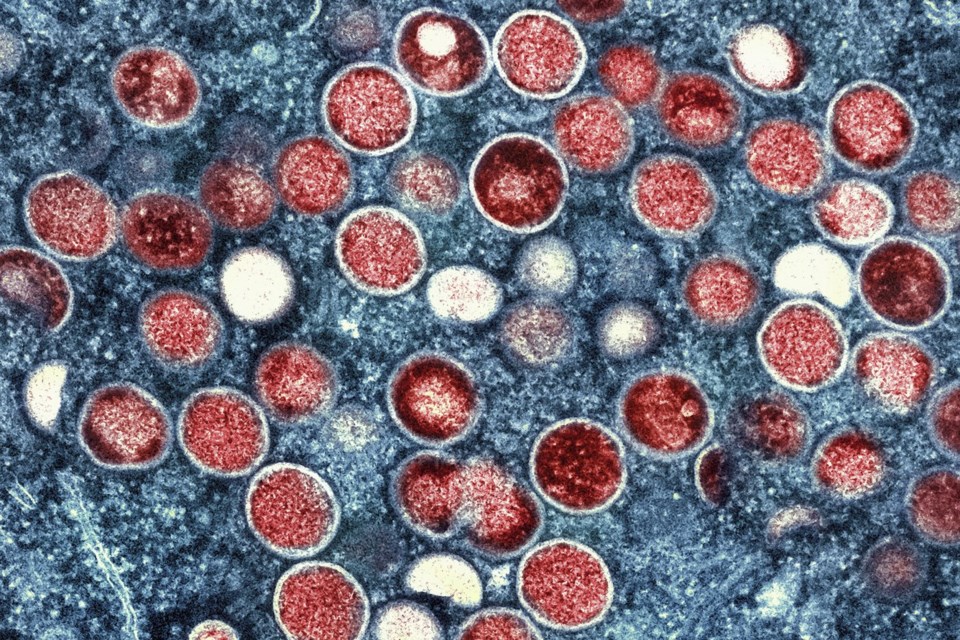TORONTO — Toronto public health officials are urging eligible residents to get vaccinated against mpox as the number of reported cases in the city continues to rise.
Toronto Public Health said Tuesday there has been a spike in reported cases of mpox — formerly known as monkeypox — in late June and July following major events and festivals in the city.
As of July 31, a total of 93 cases have been confirmed this year, compared to 21 confirmed cases reported for the same period last year, it said.
While mpox cases have been reported across the city, there has been a higher concentration of cases in residents in the downtown core, the agency said.
Mpox cases have been spreading in multiple countries in Africa, according to the World Health Organization. An emergency committee convened by the WHO is scheduled to meet on Wednesday to determine whether or not mpox is a public health emergency of international concern.
The virus spreads between people through contact with infected lesions, skin blisters, body fluids or respiratory secretions, and can also be transmitted through contact with contaminated materials such as clothes or bedding, it said.
Toronto Public Health said mpox is currently spreading mostly between people who have close, intimate or sexual contact with a person who has the virus, with gay, bisexual and other men who have sex with men being most affected.
"Travel is not a significant factor among current cases which suggests local community transmission of the virus," it said in a statement.
The agency said vaccination is the best way to prevent further spread, and recommends two doses given at least 28 days apart for the best protection.
The Toronto Public Health website lists who is eligible to receive the vaccine. Men who have sex with men are eligible if they have or are planning to have two or more sexual partners, have attended venues for sexual contact, have had or are planning to have anonymous sex, are a sexual contact of someone who does sex work, or has had a confirmed sexually transmitted infection in the past year.
Anyone who does sex work, regardless of self-identified sex or gender, is eligible to receive the vaccine, the website says.
Household members or sexual contacts of those listed above who are immunocompromised or pregnant may also be eligible for mpox vaccination.
People who have had close contact with someone with mpox may be able to get a post-exposure vaccination. That should ideally be given within four days of exposure but can be administered up to 14 days after the last exposure, the website says.
This report by The Canadian Press was first published Aug. 13, 2024.
The Canadian Press




